Is your cat panting similar to a dog? Bad news, your feline housemate probably has Cat Asthma or Feline Asthma.
You may be thinking right now, “Wait, what? Cat asthma?! How’s that even possible??” Well, don’t you worry. All your burning questions will be answered right here, so buckle up and get ready to learn all there is about cat asthma. The whys, the hows, the dos, and the don’ts, you’ll get them all answered here.
But first, let’s understand what cat asthma is.
What Is Cat Asthma?
Just like humans, asthma in cats is the same. The inflammation, the shortness of breath, cats experience all of the same as us. This inflammation in the lungs is triggered by either stress or allergens.
Cat asthma is caused when the allergens reach the feline’s lungs and trigger an autoimmune response. This immune response essentially tells the airways to narrow down and not let any more allergens get to the lungs. Due to constriction in the air passage, a slew of problems can occur for the cat. Mucus starts accumulating in the airways, and coupled with the fact that the air passage is narrower now, less oxygen is able to enter the lungs.
This phenomenon leads to the poor feline being forced to breathe through the mouth and effectively results in panting that is observed in dogs. A side thought you might be having is why do dogs pant then? Well, dogs pant because they don’t have sweat glands and instead cool down by releasing saliva through panting.
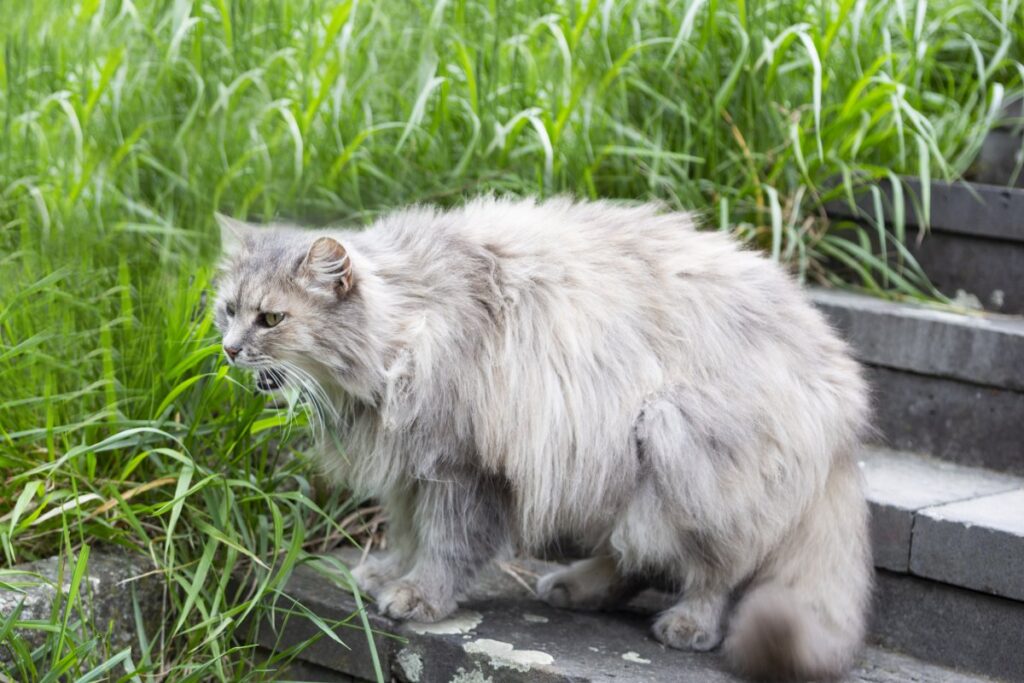
Why Does My Cat Have Asthma?
Typically, only 1-5% of cats are affected by asthma, and there isn’t a particular cause for it or why it occurs in cats at all. Some cat breeds seem to have a higher susceptibility rate to asthma. These are the Siamese and Himalayan breeds, to be specific. Although, it is not yet determined why these particular breeds are affected more than other breeds.
How Do I Stop These Asthma Attacks?
There are a number of things that are very commonly found in the surroundings that can cause an immune response to be triggered in your cat, causing an asthma attack. Below is a list of these common triggers, and you’d be wise to keep your cat away from these:
- Dust
- Grass
- Pollen
- Household chemicals
- Cigarette smoke
- Aerosol sprays and perfume
Typically, symptoms of an asthma attack will start showing within minutes of exposure to any one of these triggers. It should be noted that the same triggers (and more) also apply to asthma in humans.
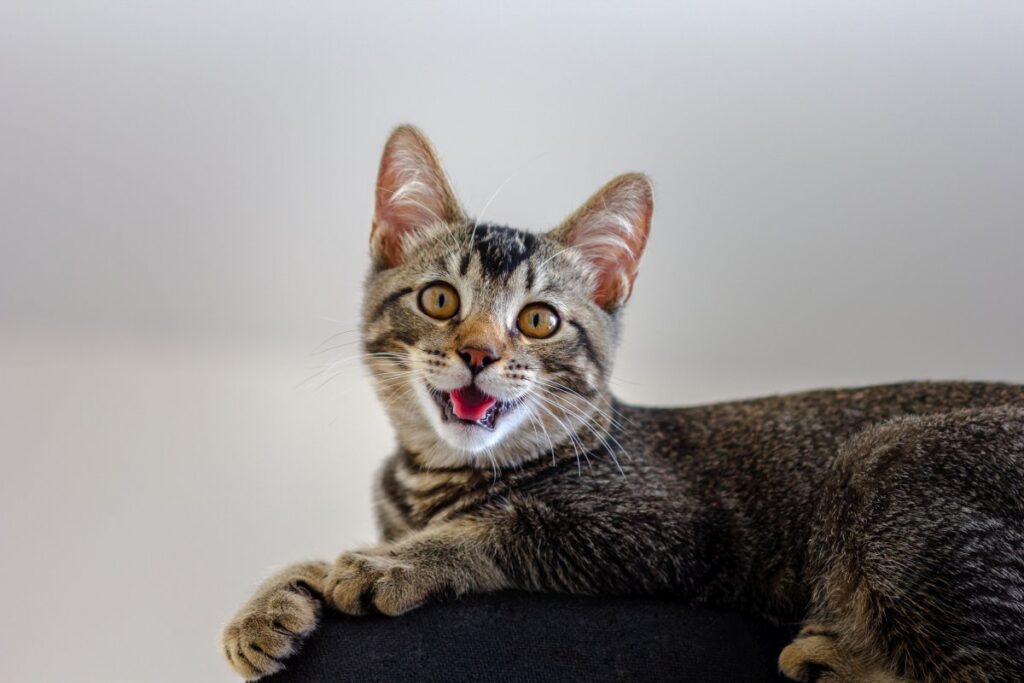
Symptoms of Cat Asthma
A house cat is panting…
Cats display a variety of symptoms when suffering from asthma. These symptoms can be anywhere from very light to intense. Look out for these signs in your cat:
- Lethargy: Your cat may get lethargic after a heavy playing/running around session, and you may notice she is having difficulty breathing.
- Heavy Breathing at Rest: Cats typically breathe anywhere from 25-30 breaths per minute. If you notice your cat is breathing more than 40 breaths per minute while resting, it is probably time for a visit to the vet.
- Panting: As mentioned earlier, panting in cats indicates asthma, and you must consult the vet ASAP.
- Blue Lips/Gums: Due to a lack of oxygen reaching the bloodstream, your cat’s gums and/or lips may turn a blue-ish color. This is because the red blood cells are not carrying enough oxygen to the gum area and other areas of the cat’s body.
- Neck Extended and Body Squatting: If your cat’s neck is stretched outwards while its body is in a squatting position, the cat is probably trying to open the airways to let more oxygen in.
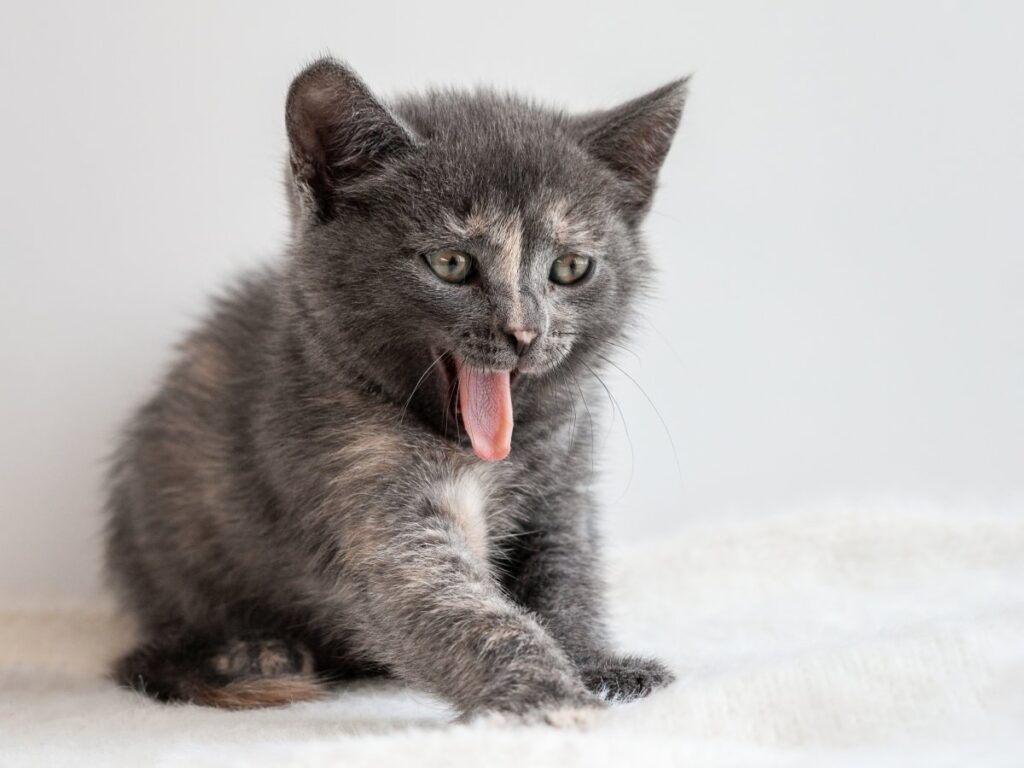
Should I Take My Cat to the Vet?
If you notice one or more symptoms in your pet feline, it is advised to go to the vet sooner rather than later. Do not wait for the cat to show the symptom again in order to confirm it. The condition could worsen unnecessarily, so it’s better to be safe rather than sorry.
If a vet is not available at the time of the asthma attack, you can try the following:
- Give any medication if already prescribed by the vet.
- If your cat is in a small space, make sure to take her to a well-ventilated area.
- Try to calm down your cat by giving it scratches under the neck. Relaxing the cat can also help to relax the airways.
Awareness of the symptoms is absolutely essential, and other pet owners in your circle should be informed as well.
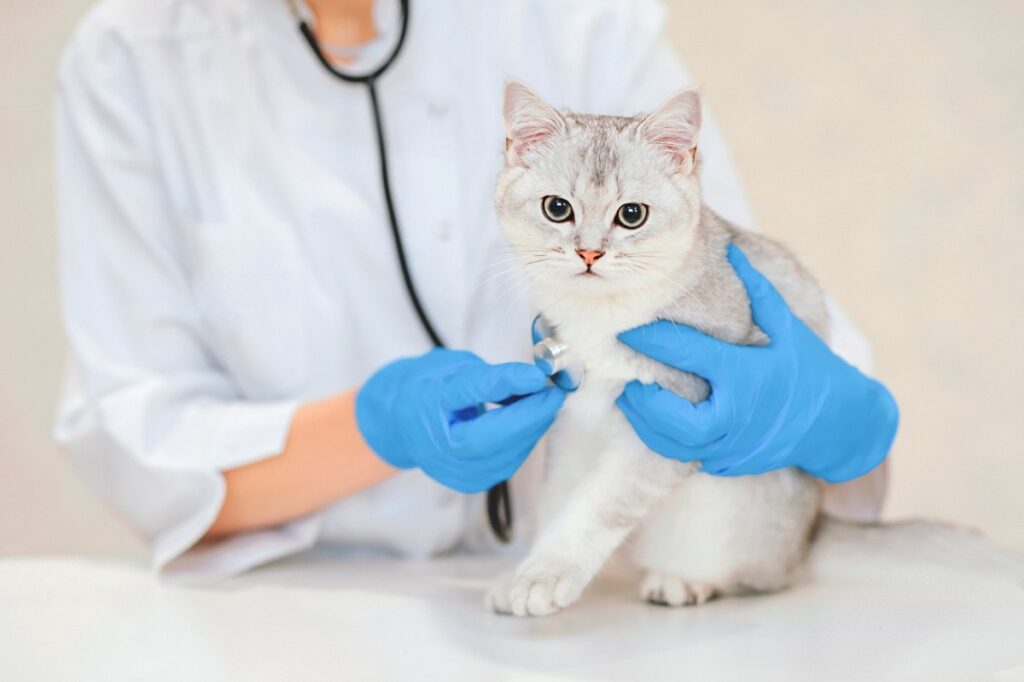
Can Asthma Be Treated in Cats?
The answer is yes; asthma can be treated in cats very similarly to how it is treated in humans. When you visit your vet, they will prescribe a cat inhaler that, just like human inhalers, helps in reducing the inflammation of the lungs and opening up the air passage.
Corticosteroids
The medicine that the inhaler helps reach the lungs is called corticosteroids. They are the primary medication given by vets to treat asthma in cats. These are available in inhaled, oral, and injectable forms, with the most common being in the inhaled form to help in the long-term control of the disease.
Corticosteroids go by many names when purchased from a vet or pharmacy. Some of the commonly available ones are DEXAMETHASONE, FLUTICASONE PROPIONATE, and PREDNISOLONE. It is possible that the medicine goes by a different name in your country or city.
Bronchodilators
Bronchodilators work by relaxing the trachea muscles and, as a result opening up the airways. These are more extreme options used in emergency scenarios to provide immediate relief to the cat. Although they don’t treat asthma itself, every cat owner whose pet has asthma should have a supply of them at home.
Wrapping Up
All in all, pet owners must understand that cat asthma is a progressive condition letting cats experience occasional flare-ups of asthma that may vary in intensity from mild to severe. Though cat asthma cannot be treated completely, it is your responsibility as a pet parent to carefully monitor your cat’s respiratory efforts. Keep an eye out for her coughing and medication whenever your cat needs it.

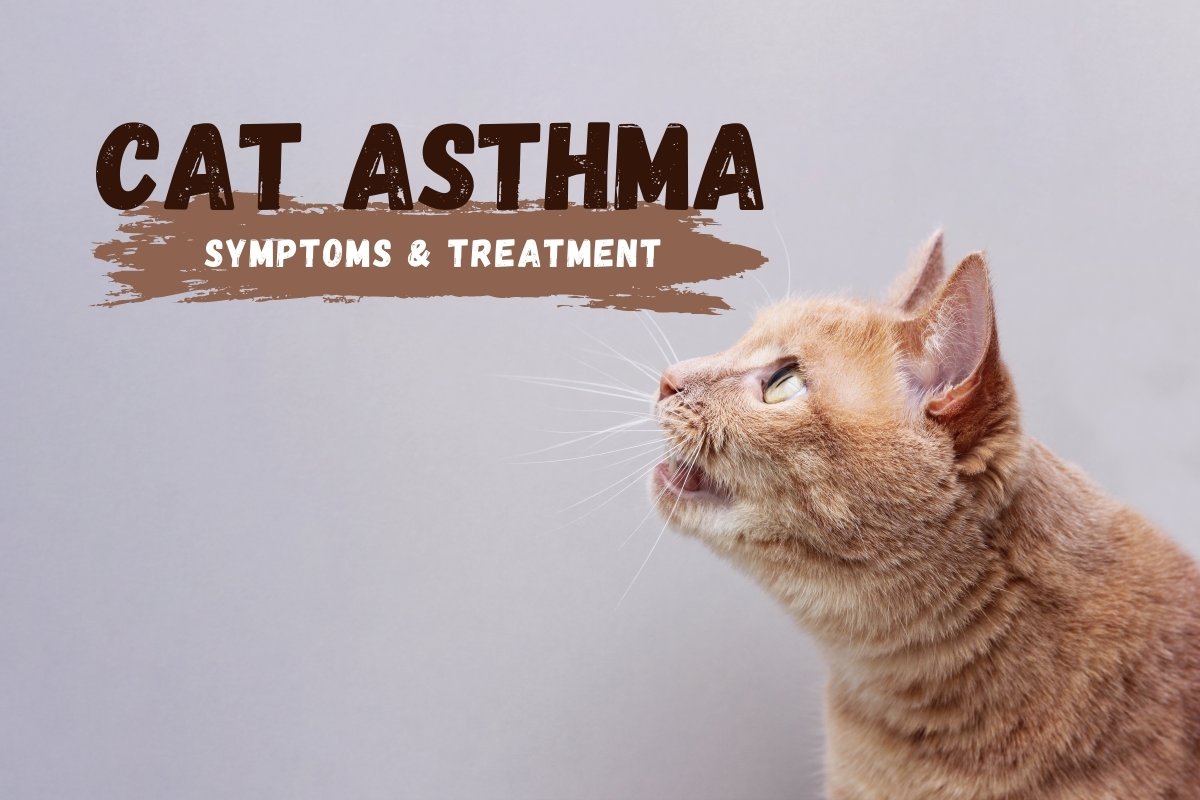
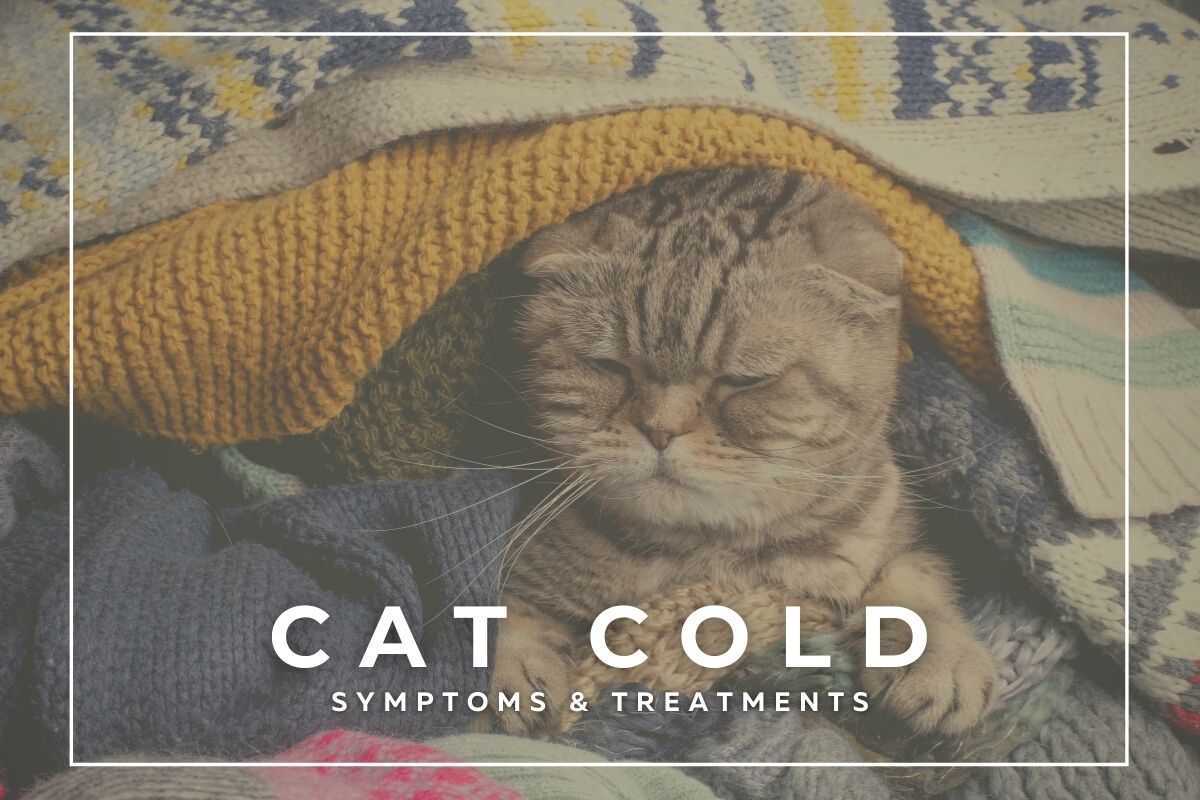
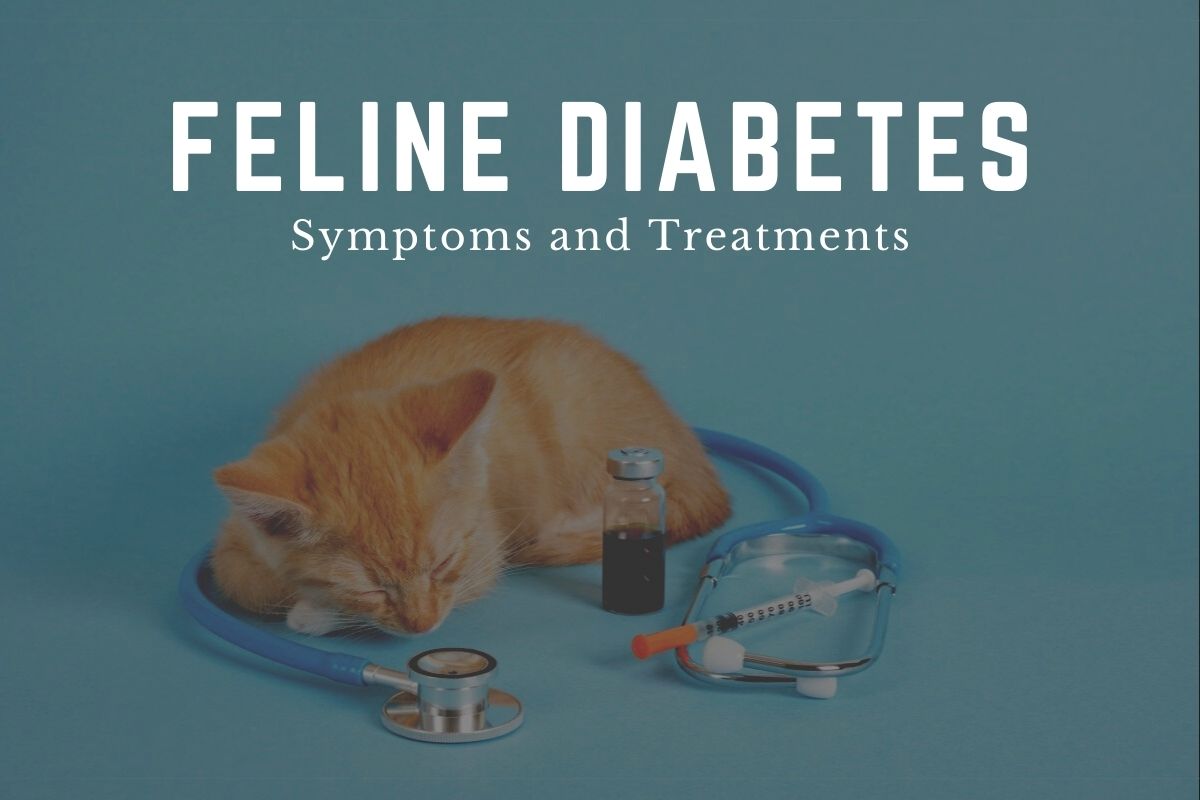
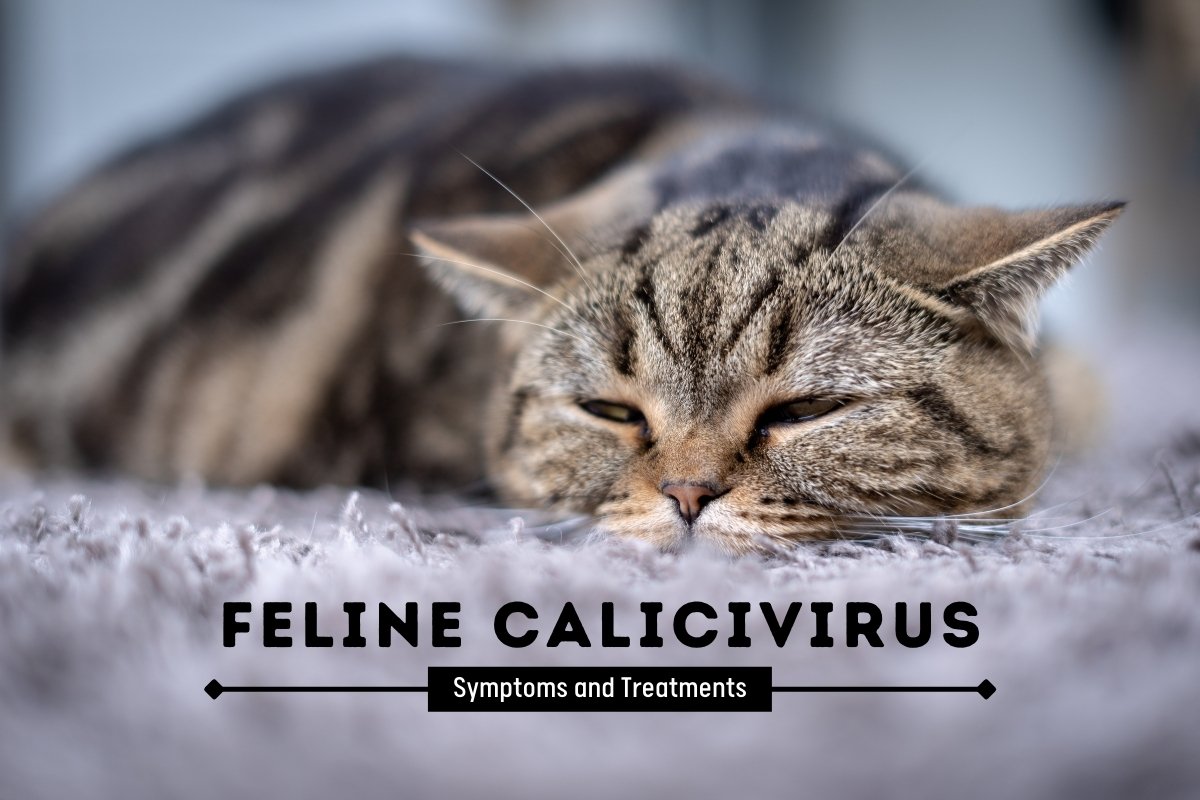
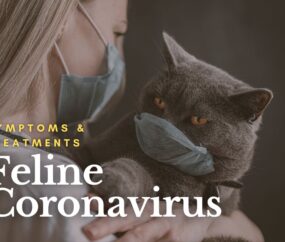
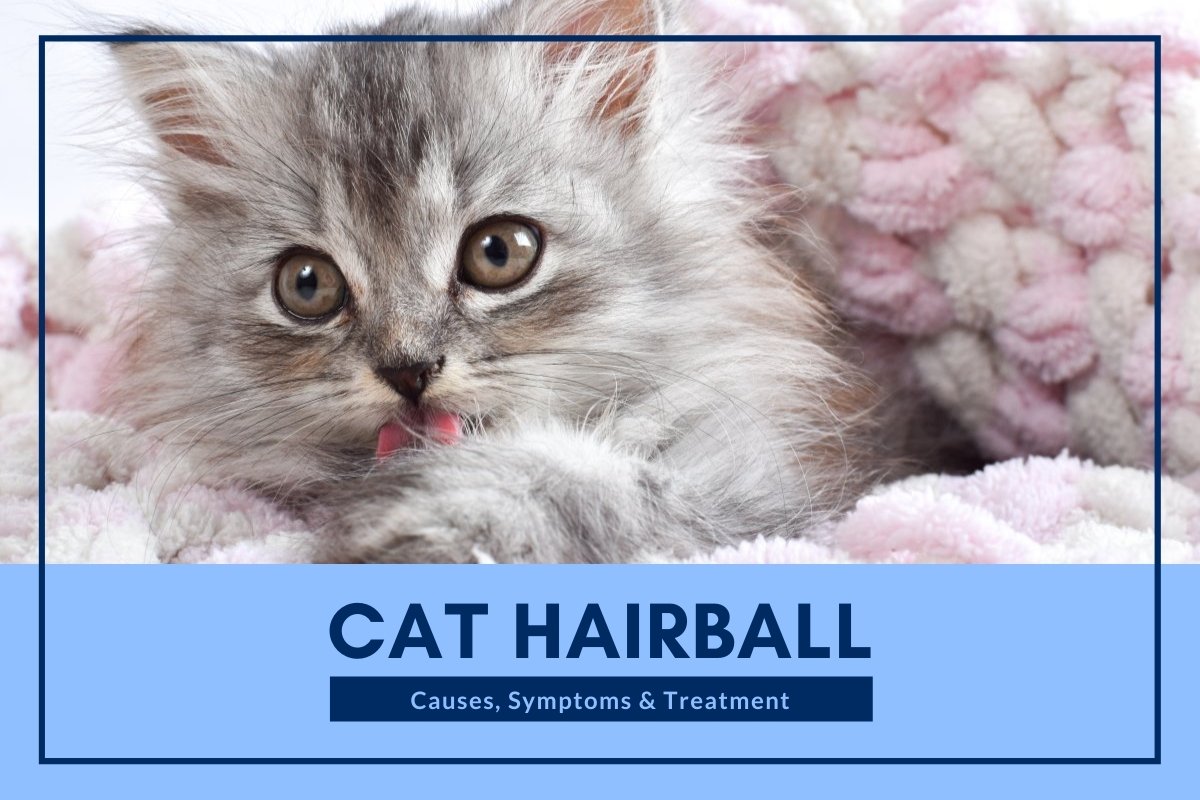
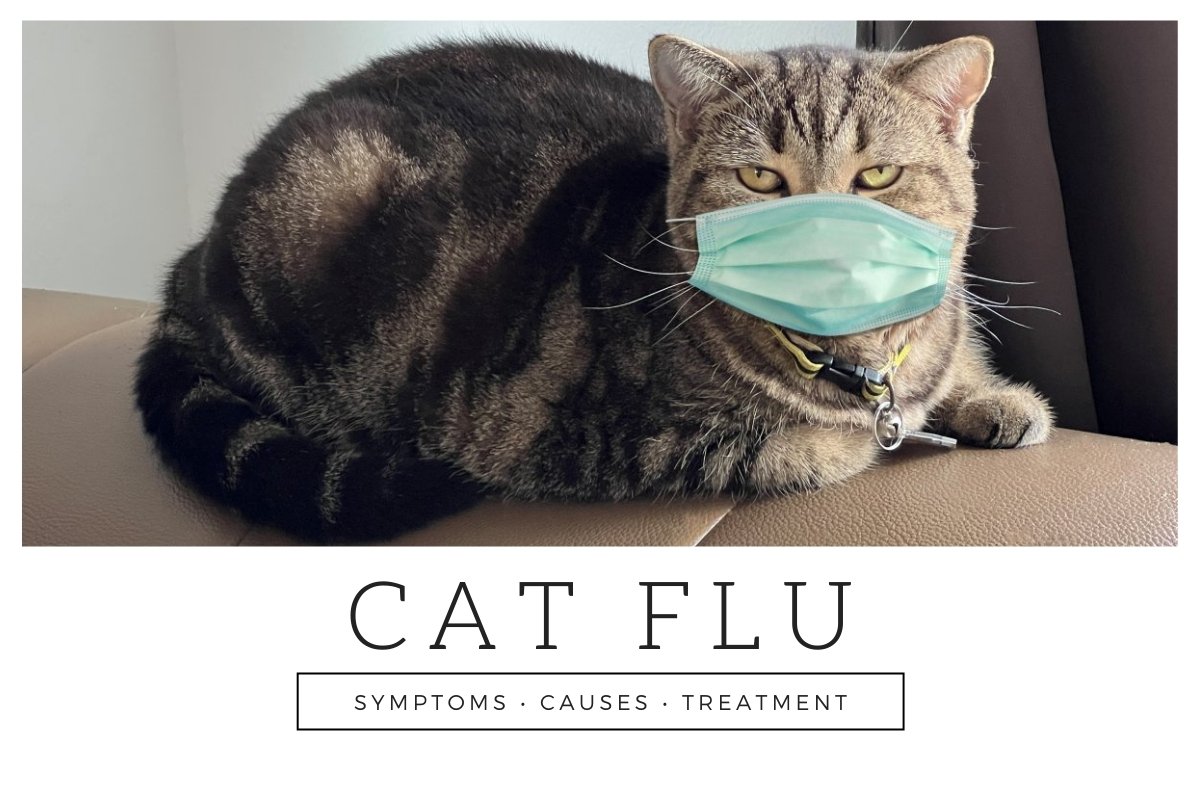
1 comment